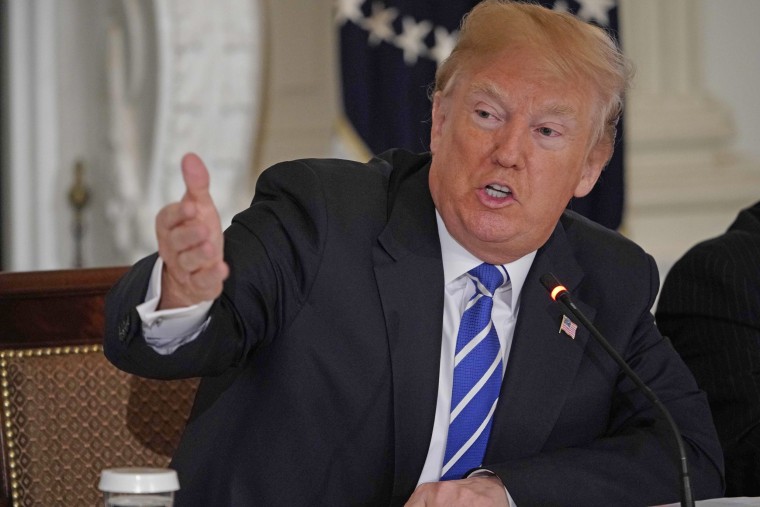The White House unveiled its long-awaited infrastructure plan on Monday, proposing $200 billion in new federal spending that it says will ultimately spur a $1.5 trillion investment over the next 10 years.
"We have to rebuild our infrastructure," President Donald Trump said Monday morning. "We're trying to fix roads and bridges that are falling down."
The plan includes $100 billion in "incentives" that would require local and state governments to pony up big bucks or partner with private companies to unlock federal dollars. While the government will judge several criteria when considering whether or not to give out infrastructure dollars, the biggest will be outside funding.
The proposal sets the stage for unprecedented private investment in public infrastructure, and the president took the opportunity Monday to remind those assembled at the White House of his own private-public success story. As a real estate developer, Trump completed long-stalled renovations on the ice skating rink Central Park in 1986 ahead of schedule and under budget.
Democrats pounced on the plan immediately, pushing back on the outsize role local and private funding would have to play.
“The president’s infrastructure proposal would do very little to make our ailing infrastructure better, but would put unsustainable burdens on our local government and lead to Trump tolls all over the country," Senate Minority Leader Chuck Schumer, D-N.Y., said in a statement, referring to the use of tolls by private companies to profit from infrastructure.
House Minority Leader Nancy Pelosi, D-Calif., said in a statement that after "a full year of empty boasts, the "president has finally unveiled a puny infrastructure scam that fully fails to meet the need in America’s communities."
The Democrats' $1 trillion infrastructure plan is "five times bigger than the Trump plan" and would "create more than 16 million good-paying American jobs, unlock the economic potential of every community and bring money into the Treasury," Pelosi said.
In Trump's plan, another $20 billion will be earmarked for expanding federal loan programs that focus on various kinds of infrastructure, like rail, water and transportation, and for expanding a tax-exempt bond program for private companies.
His administration's proposal also allocates $50 billion for rural infrastructure projects to be distributed as block grants to states, and another $20 billion for "transformative programs" that “have the potential to dramatically improve America’s infrastructure."
Trump said his plan would "return power" to states and local governments.
"Nobody knows more where you want the money to be invested than you guys," he said to the local leaders in attendance, which included Wisconsin Gov. Scott Walker, a Republican, and Virginia Gov. Ralph Northam, a Democrat.
The president pushed the idea of public-private partnerships to fund infrastructure projects in his State of the Union address last month, though NBC News has reported that Trump himself was waffling on the funding idea.
"Every federal dollar should be leveraged by partnering with state and local governments and, where appropriate, tapping into private sector investment — to permanently fix the infrastructure deficit," the president said in his address to Congress.
The White House said Sunday that it would use yet-to-be-announced budget cuts to pay for the program, and acknowledged that this is a starting point for a negotiation with lawmakers. Both parties are likely to see problems with Trump's plan: Democrats are sure to call for more federal investment, while conservatives typically oppose increased federal spending.
In keeping with the president’s campaign promises to cut red tape, the plan also vows to rewrite the regulation and permitting process to speed infrastructure investment, shortening and simplifying the approval process. That includes putting environmental reviews into one agency, shortening the timeline for those reviews to two years.
The president repeatedly interjected complaints about the media during his meeting with local authorities, complaining that the press wouldn't want to talk about infrastructure reform.
"I find it sexy, because I used to be a builder," he said.
